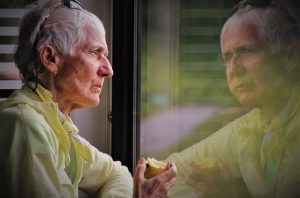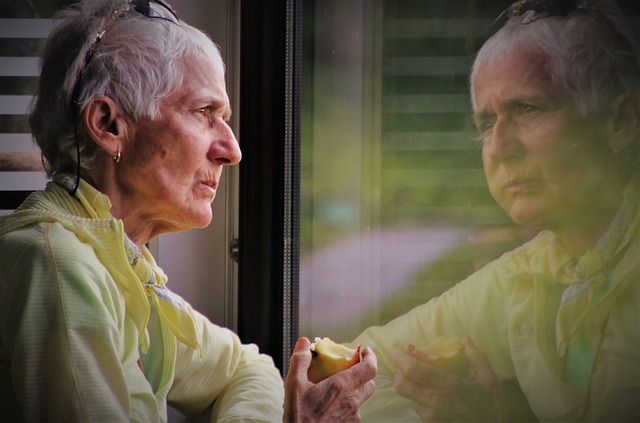As you age, your body undergoes a multitude of changes that can impact your overall health and well-being.
Did you know that by the year 2030, it is estimated that one in five Americans will be over the age of 65? With an aging population comes an increased focus on how to optimize wellness in later years.
The effects of aging on personal health are vast and varied. From physical changes like decreased bone density and muscle mass to cognitive declines such as memory loss, it’s important to understand how these changes can impact your daily life.
However, with proper knowledge and proactive measures, you can take steps to promote optimal health and wellness as you age. In this article, we’ll explore various strategies for maintaining physical, mental, and emotional well-being in later years.
Understanding the Changes that Occur as We Age
 You’ll notice that as you get older, your body undergoes a series of transformations that can affect the way you feel and function on a day-to-day basis.
You’ll notice that as you get older, your body undergoes a series of transformations that can affect the way you feel and function on a day-to-day basis.
Common misconceptions about aging include the idea that it is normal to experience significant decline in physical and mental abilities, but this is not necessarily true. In fact, many of the changes associated with aging are actually due more to lifestyle factors than chronological age.
One example of how societal attitudes can contribute to negative perceptions of aging is the belief that memory loss and cognitive decline are inevitable parts of getting older. While some mild forgetfulness may be common, severe memory loss is not a normal part of healthy aging. In addition, many other aspects of cognition such as attention, language ability, and problem-solving skills can remain relatively intact with age.
Another commonly misunderstood aspect of aging is physical fitness. Many people assume that as they get older they will automatically become weaker and less active. However, research shows that regular exercise can help maintain strength and flexibility well into later years.
By staying active throughout your life, you can minimize the effects of aging on your personal health and enjoy better wellness overall.
The Role of Exercise in Promoting Health and Wellness
Get moving! Exercise is a crucial component in maintaining good physical and mental health as you age. With a regular exercise routine, you can reduce the risk of chronic diseases such as diabetes, heart disease, osteoporosis, and even some types of cancer.
Here are three types of exercises that you should include in your routine:
– Strength training: As we age, our muscles lose mass and strength. By engaging in strength training exercises such as lifting weights or resistance band workouts, you can help maintain muscle mass and improve bone density.
– Balance exercises: Falls can be a serious concern for older adults. By incorporating balance exercises like Tai Chi or yoga into your routine, you can improve your balance and reduce the risk of falls.
– Aerobic exercise: Engaging in aerobic activities such as walking, biking or swimming can help keep your cardiovascular system healthy. It also helps to reduce stress levels which is important for overall mental health.
Incorporating these types of exercises into your daily routine doesn’t have to be difficult. Start slow with 10-minute workouts and increase the duration over time. It’s important to find an activity that you enjoy doing so that it becomes a part of your lifestyle rather than something that feels like a chore.
Regular exercise has numerous benefits beyond just physical health. It has been shown to improve cognitive function and even mood!
So don’t wait any longer – get moving today!
The Importance of Proper Nutrition and Hydration
Eating healthy and staying hydrated is crucial for feeling your best and getting the most out of your workouts.
When it comes to meal planning, aim for a balanced diet with plenty of fruits, vegetables, lean proteins, and whole grains. Avoid processed foods high in sugar and unhealthy fats. Don’t skip meals or drastically reduce calories, as this can lead to nutrient deficiencies and sluggishness.
In addition to food choices, proper hydration is essential for optimal health. Drink water throughout the day, especially before, during, and after exercise. If you struggle with drinking enough water or find it bland, try adding citrus fruit slices or herbal tea bags for flavor. Avoid sugary drinks like soda and energy drinks which can dehydrate you further.
If you have dietary restrictions or find it difficult to get all the nutrients your body needs from food alone, consider supplements under the guidance of a healthcare professional. They may recommend multivitamins or specific nutrients like calcium or vitamin D based on your individual needs.
Remember that supplements should never replace a healthy diet but can complement it when used appropriately. By prioritizing proper nutrition and hydration habits tailored to your unique needs, you can optimize wellness in later years while enjoying an active lifestyle full of vitality.
Managing Chronic Conditions in Later Years
As you age, it’s important to manage chronic conditions that may arise to ensure you can continue to participate in activities and hobbies you enjoy.
One of the most important aspects of managing your health is medication management. It’s crucial to take any prescribed medications as directed by your doctor and keep track of any potential side effects or interactions with other medications.
Another way to manage chronic conditions is by building a strong social support network. This can include friends, family, support groups, or even online communities. Having people who understand what you’re going through and can provide emotional support can make a big difference in how well you cope with chronic conditions.
In addition to medication management and social support networks, it’s also essential to stay engaged with your healthcare providers. Schedule regular check-ups with your doctor or specialist, and don’t be afraid to ask questions or voice any concerns about your health.
By staying proactive about managing chronic conditions as you age, you’ll be able to maintain a good quality of life and continue doing the things that bring joy and fulfillment into your life.
Strategies for Maintaining Mental and Emotional Well-being
Maintaining mental and emotional well-being is crucial as we age, and did you know that studies show that engaging in regular physical activity can reduce the risk of developing depression by up to 35%?
Furthermore, incorporating mindfulness practices into your daily routine has been shown to significantly reduce stress levels. This could include activities such as meditation, yoga, or deep breathing exercises.
Another important aspect of maintaining mental and emotional health in later years is social engagement. Staying connected with friends and loved ones can help combat loneliness and isolation, which are common issues among older adults.
Consider joining a community group or club that aligns with your interests or hobbies. You can also volunteer at a local organization or participate in group fitness classes to meet new people.
In addition to physical activity and social engagement, it’s important to prioritize self-care practices for optimal mental health. This may include getting enough sleep each night, eating a balanced diet rich in nutrients, staying hydrated throughout the day, and taking time for yourself to indulge in relaxing activities like reading a book or taking a warm bath.
By focusing on these strategies for maintaining mental and emotional wellness in later years, you can improve your overall quality of life while aging gracefully.
What are some common misconceptions about aging and personal health?
You might have heard some common misconceptions about aging and personal health, but it’s important to separate fact from fiction.
One misconception is that as you age, your mental health automatically declines. However, this isn’t necessarily true – healthy habits like regular exercise and socializing can help maintain cognitive function.
Another myth is that older adults are frail and unable to do physical activities, when in reality, staying active can actually improve overall health and mobility.
By understanding these mental health misconceptions and adopting healthy habits, you can optimize your wellness in later years.
How does social isolation impact personal health in later years?
Imagine yourself as a plant that needs sunlight, water, and nutrients to grow. Social isolation is like being deprived of these essential elements; it can wither your mental health and wellness in later years.
Without community support, you may feel lonely, anxious, and depressed, leading to physical health problems such as high blood pressure and weakened immune system.
Social isolation has significant mental health implications for older adults who are more vulnerable due to age-related changes in the brain.
Therefore, it’s crucial to stay connected with friends, family, or local organizations that provide social activities to promote overall well-being.
What role do genetics play in the aging process and personal health?
Epigenetics and aging are closely related, as research has shown that changes in gene expression can accelerate or slow down the aging process.
While genetics do play a role in how we age, epigenetics examines how environmental factors can affect our genes and it could potentially be reversed through lifestyle changes such as nutrition and exercise.
Nutrition is also key to longevity as studies have shown that certain diets such as the Mediterranean diet, which is rich in fruits, vegetables, whole grains, lean proteins, and healthy fats may help reduce the risk of chronic diseases associated with aging.
So while genetics do play a part in aging and personal health, taking control of our lifestyles through proper nutrition can optimize wellness in later years.
How does climate and environment affect personal health in later years?
Depending on where you live, certain environmental factors can increase your risk for various health issues. For example, if you live in an area with high levels of air pollution, you may be at a higher risk for respiratory problems like asthma or COPD.
On the other hand, living in a warmer climate can put you at risk for heat-related illnesses like dehydration or heat stroke.
But don’t worry – there are plenty of preventive measures and lifestyle changes that you can make to help mitigate these risks. This might include things like staying indoors during peak pollution times or investing in a quality air purifier, drinking plenty of water when it’s hot outside, or even just moving to a more temperate climate altogether.
By being aware of the potential impacts that your environment can have on your health and taking proactive steps to stay healthy, you’ll be able to enjoy all the benefits that come with aging gracefully!
What impact does spirituality or religion have on personal health and wellness in later years?
Incorporating spirituality or religion into your life can have a significant impact on your mind-body wellness in later years.
Connecting with a community that shares your beliefs can provide much-needed support and a sense of belonging.
Engaging in spiritual practices, such as meditation or prayer, has been shown to reduce stress, lower blood pressure, and improve overall mental health.
Additionally, many religious traditions promote healthy lifestyle habits such as regular exercise and balanced nutrition.
By prioritizing spirituality and surrounding yourself with like-minded individuals, you can optimize your personal health and wellness in later years.
By now, you should have a better understanding of the changes that occur as we age, including physical, mental, and emotional changes. Remember that exercise is an essential component of promoting health and wellness in later years.
Don’t forget to prioritize proper nutrition and hydration as well. Managing chronic conditions can also be challenging, but with proper care, it can be done effectively.
Lastly, never underestimate the power of maintaining your mental and emotional well-being by engaging in activities that bring joy and fulfillment into your life.
In conclusion, taking care of yourself is crucial for optimal well-being in your later years. So go out there, dance like nobody’s watching (hyperbole), enjoy each moment with loved ones while prioritizing self-care because aging gracefully starts with a healthy mind-body connection!









